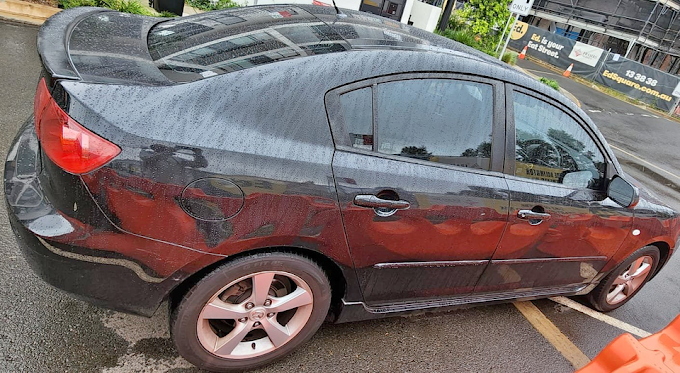Old cars affect the environment through higher emissions, inefficient fuel use, and unsafe disposal practices.Understanding these impacts helps car owners make better decisions about keeping, repairing, or selling ageing vehicles. This article explores the environmental footprint of older cars, their pros and cons, and practical solutions, including sustainable options like recycling and cash-for-car services such as Sell Cars Easily in the Sunshine Coast.
Why Old Cars Contribute to Environmental Damage
Old cars emit more pollutants because their engines lack modern emission controls. Vehicles manufactured before the year 2000 typically release higher levels of carbon monoxide, hydrocarbons, and nitrogen oxides. These gases contribute to air pollution and climate change.
For example, a car built in 1995 may release up to 19 times more emissions than a vehicle produced in 2015 under modern Euro 6 standards.
| Factor | Old Cars (Pre-2000) | Modern Cars (Post-2015) |
|---|---|---|
| Fuel Efficiency | 8–10 km per litre | 15–20 km per litre |
| Emission Standards | Minimal regulation | Euro 6 or equivalent |
| Safety Features | Limited | ABS, airbags, advanced braking |
The comparison highlights why older vehicles create a bigger environmental burden.
Key Features of Old Cars That Impact Sustainability
Old vehicles have design features that influence how they interact with the environment:
- Engine technology – Carburated engines burn fuel less efficiently compared to modern fuel injection systems.
- Fuel type – Leaded petrol, used widely before 2002 in Australia, left toxic residues.
- Manufacturing materials – Older models contain higher proportions of steel and less recyclable plastics.
- Safety equipment – Minimal safety standards increase accident-related waste and scrappage.
These features highlight why ageing cars are less compatible with sustainability goals today.
Common Functions of Old Cars and Their Limitations
Old cars function as affordable transport and sentimental keepsakes, but they have environmental limitations. They consume more fuel, require frequent maintenance, and release higher emissions per kilometre.
Examples include:
- Daily commuting – Older sedans use nearly double the fuel of compact hybrids.
- Weekend use – Classic vehicles maintained for leisure often burn premium fuels at higher rates.
- Long-distance driving – Frequent breakdowns create waste from spare parts and oil leaks.
Use Cases of Old Cars in Modern Australia
Despite their drawbacks, older cars still serve specific purposes.
- Collectors – Enthusiasts preserve vehicles like Holden Monaros or Ford Falcons as cultural icons.
- Budget drivers – Students or families may keep older cars for short-term affordability.
- Rural use – Farmers often maintain ageing utes for work on private properties.
These use cases show why not every old vehicle ends up scrapped immediately, but each comes with environmental trade-offs.
Pros and Cons of Keeping an Old Car
Keeping an older car has both benefits and disadvantages.
| Pros | Cons |
|---|---|
| Lower purchase cost | High emissions |
| Cultural or sentimental value | Frequent breakdowns |
| Easy availability of spare parts | Poor fuel efficiency |
| Useful for short trips | Higher maintenance waste (oil, tyres) |
This balance helps car owners decide whether to maintain or dispose of their vehicle responsibly.
Target Audience for Sustainable Vehicle Solutions
The groups most affected by the impact of old cars include:
- Urban residents in areas with stricter air quality regulations.
- Families managing fuel costs and vehicle safety.
- Enthusiasts balancing passion for classics with environmental concerns.
- Local communities where recycling businesses such as Sell Cars Easily in Sunshine Coast provide alternatives for ageing cars.
Situational Relevance: Why It Matters Now
Australia has around 19.8 million registered vehicles, with an average age of 10.4 years (ABS, 2024). The Sunshine Coast reflects this national trend, where older vehicles remain common. Rising fuel costs, environmental concerns, and government incentives for cleaner cars increase the relevance of discussing sustainable solutions today.
Practical Steps: What You Can Do About It
To reduce the environmental footprint of an older car, owners can follow these steps:
1. Maintain Vehicles Regularly
Regular servicing improves fuel efficiency and lowers emissions. Replacing clogged air filters, fixing leaks, and keeping tyres inflated reduces unnecessary fuel use.
2. Upgrade When Possible
Switching to a newer model, even a second-hand car from the last decade, halves emissions compared to pre-2000 vehicles.
3. Use Recycling Services
Car recycling reduces landfill waste. Businesses like Sell Cars Easily on the Sunshine Coast dismantle vehicles, salvage metals, and recycle usable parts. For example, steel from one scrapped car can produce materials for 6 new appliances.
4. Consider Alternative Transport
Public transport, ridesharing, and bicycles reduce reliance on high-emission vehicles, especially for short trips.
5. Dispose of Fluids Responsibly
Engine oil, coolant, and brake fluids from old cars contaminate soil and waterways if dumped. Recycling centres accept these fluids safely.
How Sell Cars Easily Supports Sustainable Car Disposal
Sell Cars Easily offers an eco-conscious solution for Sunshine Coast residents with older vehicles. The service collects unwanted cars, provides fair cash payments, and ensures materials like steel, aluminium, and plastics are recycled. Instead of allowing unused cars to rust and pollute, owners can turn them into resources that re-enter the economy.
This approach reduces landfill waste, supports circular economy practices, and gives car owners a straightforward path toward sustainable disposal.
visit: https://sellcarseasily.com.au/cash-for-cars-sunshine-coast/
Final Thoughts
Old cars impact the environment by emitting more pollution, consuming extra fuel, and generating waste when scrapped improperly. Their cultural and sentimental value cannot be ignored, but environmental consequences remain significant.
Sunshine Coast residents can take practical steps such as regular maintenance, upgrading to newer models, or responsibly recycling with services like Sell Cars Easily. By making conscious decisions, car owners reduce their environmental footprint while still respecting the role old cars play in Australia’s motoring heritage.
